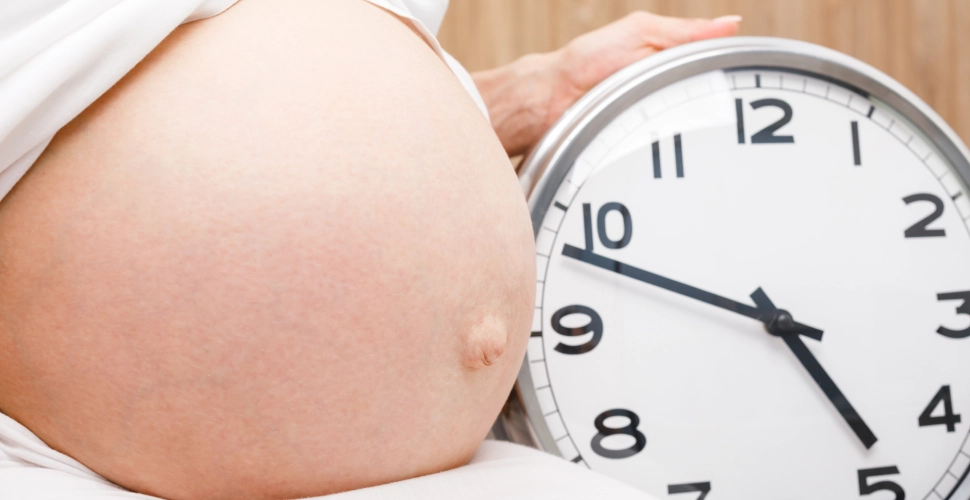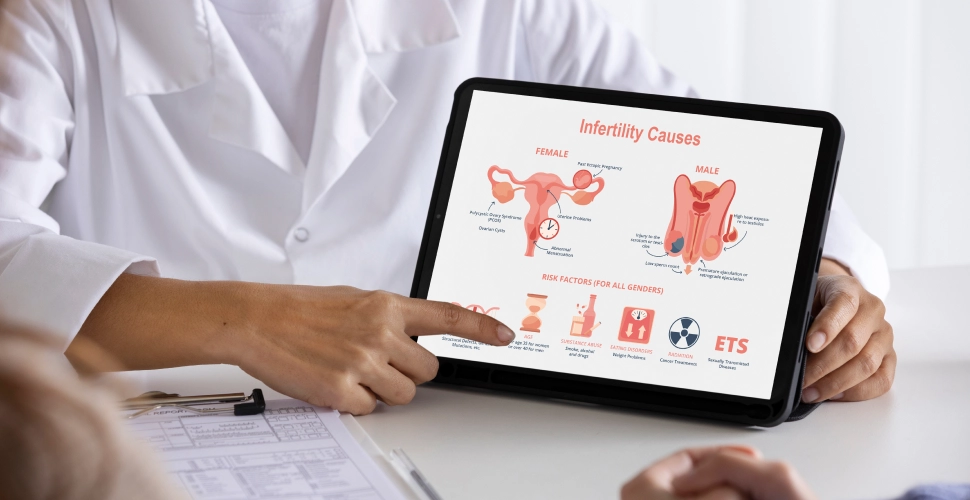
If you’re trying to become pregnant, you might hear the term “biological clock.” This refers to the fact that fertility can naturally decrease as people get older. In this article, you’ll learn which factors can affect your biological clock and potential ways to increase your chances of becoming pregnant.
Which Age Does Fertility Begin To Decline?
Can I Get Pregnant If I’m Older Than 35?
- Increased risk of chromosomal abnormalities, such as Down syndrome
- Higher chance of miscarriage
- Greater likelihood of gestational diabetes
- Elevated risk of high blood pressure and preeclampsia
- Increased chances of needing a cesarean section (C-section)
- Higher probability of preterm birth
- Elevated risk of low birth weight in babies
- Increased chance of stillbirth

Factors Affecting the Biological Clock
- Age: Age is the primary factor affecting the biological clock. Fertility tends to decline in women over the age of 35 and in men after the age of 40.
- Lifestyle Choices: Smoking, excessive alcohol, and drug use can negatively affect fertility in people.
- Nutrition: A balanced diet rich in vitamins and minerals supports reproductive health, which could potentially slow down your biological clock.
- Weight: Being underweight or overweight can disrupt hormone levels, affecting fertility.
- Exercise: Moderate exercise promotes fertility, but excessive physical activity could hinder it.
- Stress: High-stress levels can affect hormone balance, impacting fertility.
- Environmental Toxins: Exposure to pesticides, heavy metals, and other pollutants can decrease fertility.
- Health Conditions: Issues like PCOS, endometriosis, and STDs in women and low sperm count in men could speed up your biological clock.
- Genetic Factors: Certain genetic conditions can affect fertility in both men and women.
- Sleep Patterns: Inadequate or irregular sleep can impact fertility by affecting hormone production.
What Can I Do To Increase My Fertility?
- Maintain a Healthy Weight: Being underweight or overweight can affect hormone levels and ovulation.
- Eat a Balanced Diet: Focus on a diet rich in fruits, vegetables, whole grains, and lean proteins. Antioxidants like folate and zinc can improve fertility.
- Limit Caffeine and Alcohol: Excessive consumption can negatively impact fertility.
- Quit Smoking: Smoking ages your ovaries and depletes your eggs prematurely.
- Reduce Stress: High-stress levels can interfere with ovulation and fertility. Practices like yoga and meditation can help.
- Exercise Moderately: Regular, moderate exercise can boost fertility, but excessive exercise could have the opposite effect.
- Avoid Toxins: Exposure to pesticides, heavy metals, and solvents can affect fertility.
- Monitor Ovulation: Understanding your cycle can help time intercourse for when you’re most fertile.
- Stay Hydrated: Adequate hydration is important for healthy cervical mucus.
- Consider Supplements: Certain supplements like folic acid, CoQ10, and others could improve fertility, but consult with a holistic fertility specialist first.

What are the Possible Causes of Infertility?
- Endometriosis
- Digestive issues
- PCOS
- Dryness of the vaginal area
- Chronic issues
- Pelvic Inflammatory Disease
- Chronic fatigue
- Irregular menstrual cycle
- Heavy menstrual bleeding
- Absence of ovulation
- Insulin resistance
- Undiagnosed thyroid dysfunctions
- Adrenal fatigue
- Cortisol Imbalance
- Gut Infections
- Vaginal infections
- Low sperm count
- Hormone imbalance
- Low testosterone
How a Holistic Fertility Specialist Can Help
- Nutritional therapy (oral or IV)
- Neural therapy
- Herbs, minerals, and peptides
- Coaching and education
- Ongoing support to ensure you’re correctly following the treatment plan
- And more
Functional Infertility Treatment with Road to Fertility
Road to Fertility specializes in functional medicine for fertility issues. Dr. Marina Yuabova and her compassionate team treat infertility with natural treatments that work in harmony with your body. We approach infertility by combining functional medicine with quantum energy and quantum diagnostics, which are turned into healing energies. All of our treatments are natural and are tailored to your body’s specific needs. If the body is having a difficult time becoming pregnant, there is a specific underlying issue that first should be addressed. Once that issue is resolved, then the body can be ready to become pregnant.